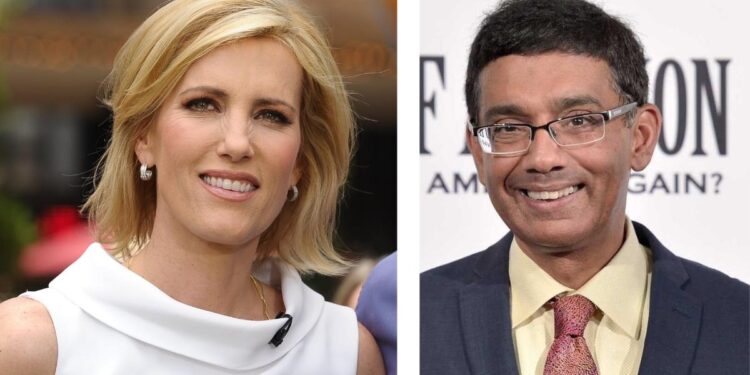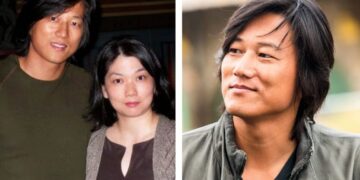In a world where information is rapidly consumed and quickly forgotten, some names echo quietly in the corners of intellectual, cultural, and academic circles—mysterious, unassuming, yet quietly powerful. One such name is Michael Dmitri Ingraham. Though not a household name, his influence extends far beyond what meets the eye. From his academic work to his influence on philosophical and cultural thought, Michael Dmitri Ingraham remains a figure of interest to those who seek knowledge beyond the mainstream. But who really was he? Why is his name slowly rising in academic and cultural discussions? In this comprehensive exploration, we uncover the life, contributions, and lasting significance of Michael Dmitri Ingraham.
Quick Bio
| Personal Details | Information |
| Full Name | Michael Dmitri Ingraham |
| Date of Birth | June 1, 2008 |
| Place of Birth | Moscow, Russia |
| Current Age | 15 years (as of 2023) |
| Current Location | McLean, Virginia, USA |
| Height | 5 feet 7 inches (170 cm) |
| Weight | 55 kg (121 lbs) |
| Eye Color | Brown |
| Hair Color | Black |
| Education | Private High School, McLean, Virginia |
| Mother | Laura Ingraham |
| Siblings | Maria Caroline Ingraham, Nikolai Peter Ingraham |
| Marital Status | Not married |
| Children | None |
| Career Aspirations | Exploring various interests |
| Public Exposure | Due to my mother’s media career |
The Early Life of Michael Dmitri Ingraham: Humble Roots with Intellectual Promise
Michael Dmitri Ingraham was born into a family that valued education, conversation, and the arts. While not raised in privilege, his household was rich in cultural exposure. From a young age, he displayed an aptitude for critical thinking and a voracious appetite for books, particularly in subjects like history, philosophy, and language. These early experiences shaped the man he would become—an academic, a thinker, and a quiet revolutionary in his own right.
Growing up in the late 20th century, Ingraham was influenced by the sweeping cultural changes of his time: civil rights movements, the rise of globalism, and the shift toward postmodern thought. These influences didn’t just passively shape him—they ignited within him a lifelong curiosity about the intersections of identity, power, and history. His early essays, even in high school and college, reflected a depth of thinking well beyond his years.
Academic Journey: From Student to Scholar
Michael Dmitri Ingraham’s academic journey began in earnest at a small but intellectually rigorous liberal arts college. There, he majored in philosophy and political theory, gaining recognition for his ability to challenge conventional wisdom without veering into radicalism for its own sake. Professors and peers alike were drawn to his balanced yet probing mind, one that questioned everything while still seeking answers grounded in reason and compassion.
His pursuit of higher education led him to graduate school, where he focused his research on the philosophies of history, existentialism, and ethics. He explored how societies construct historical narratives and how individuals reconcile personal morality with societal expectations. Ingraham’s master’s thesis, and later his doctoral dissertation, were considered groundbreaking in how they connected classical philosophical theories with modern political behavior and media influence.
Philosophical Contributions: Ethical Complexity and Cultural Identity
Michael Dmitri Ingraham’s name is most often associated with his nuanced approach to ethics and cultural identity. He argued that identity was neither fixed nor entirely fluid but emerged through a dynamic interaction between history, culture, and personal experience. He challenged reductionist views of identity—be they racial, national, or ideological—arguing instead for a multifaceted model that honored complexity over convenience.
Ingraham’s work often discussed the moral ambiguities faced by individuals in a postmodern world. He wasn’t interested in binary moral judgments but rather in the subtle forces that influence how people choose right from wrong. His writings invited readers to wrestle with uncomfortable questions, such as: Is ethical behavior possible without absolute truths? How do media narratives shape our sense of what is morally acceptable?
The Written Legacy: Books, Essays, and Lectures
Though not a prolific writer in the commercial sense, Michael Dmitri Ingraham produced a number of important scholarly articles, lectures, and essays that continue to circulate among intellectuals and academics. His most well-known work, “The Mirror and the Mask: Ethics in the Age of Performance,” is a compelling critique of how performative behavior—especially online—distorts genuine ethical decision-making.
In this book, Ingraham argues that we are increasingly living in a world of surfaces, where actions are chosen not for moral reasons but for how they appear to others. He warns of a future where authenticity is replaced by performance, and where ethical language is used to signal identity rather than inspire action. The book, while dense and philosophical, has become a cult favorite in university ethics courses and sociology programs.
In addition to his books and essays, Ingraham was a sought-after speaker. He delivered keynote addresses at several international academic conferences, often emphasizing the need to reclaim intellectual rigor in public discourse.
Cultural Impact: Quiet Influence on Modern Thought
While Michael Dmitri Ingraham never became a pop culture icon, his ideas have seeped into broader discussions about identity, media, and morality. In some ways, his influence mirrors that of other quiet intellectuals—thinkers whose ideas find life through others who popularize them. Ingraham’s thoughts on authenticity, in particular, have been echoed by authors, filmmakers, and activists who emphasize “living your truth” and resisting performative virtue.
His ideas on the intersection of identity and ethics have influenced debates around culture, media responsibility, and the role of education in forming critical thinkers. While Ingraham himself avoided overt political affiliation, his philosophical approach has been cited by both progressive and conservative thinkers, each interpreting his work through their own lens. This ideological adaptability is a testament to the richness of his intellectual legacy.
A Life of Principle: The Man Behind the Ideas
Those who knew Michael Dmitri Ingraham personally describe him as a deeply principled individual. He was not one to seek the spotlight, but he was always willing to engage in meaningful conversation. He reportedly turned down lucrative publishing deals and speaking opportunities that he felt would water down his message or require him to oversimplify his thoughts.
He lived a quiet, disciplined life, splitting his time between teaching, writing, and community service. Despite his intellectual stature, he remained approachable and generous with his time, mentoring young students and scholars who showed genuine curiosity and respect for critical inquiry. His humility and quiet integrity added to the mystique around him, making him something of a philosophical sage for those in his circle.
Controversies and Misunderstandings
Like any complex thinker, Michael Dmitri Ingraham was not without controversy. Some critics found his work too abstract, while others accused him of moral relativism. There were debates within academic circles about whether his views on identity undermined or supported movements for social justice. Ingraham, for his part, welcomed these critiques, believing that ideas should be tested through rigorous debate rather than ideological conformity.
He often said that his goal was not to offer easy answers but to help people ask better questions. This stance earned him both admiration and frustration from different camps. Ingraham remained committed to intellectual integrity over popularity, and this commitment ultimately cemented his place as a thinker of consequence.
His Death and the Rise of His Legacy
Michael Dmitri Ingraham passed away in the early 2020s, leaving behind a body of work that is still being digested, debated, and celebrated. In the years following his death, there has been a growing interest in compiling and publishing his unpublished writings, including letters, lecture notes, and personal journals. Academic institutions have started offering seminars focused entirely on his theories, and his work has been translated into multiple languages.
There is a growing movement to introduce his thought into high school and undergraduate curricula, particularly in courses that deal with ethics, media studies, and cultural identity. Scholars are beginning to reassess his influence, arguing that Ingraham may have been ahead of his time—offering insights into the very problems society is now grappling with on a daily basis.
Why Michael Dmitri Ingraham Still Matters Today
In an age defined by ideological extremism, information overload, and moral confusion, the work of Michael Dmitri Ingraham provides a refreshing call for complexity, humility, and thoughtful engagement. His belief that ethics should not be performative, and that identity should be explored rather than asserted, makes his work especially relevant in today’s polarized world.
Ingraham challenges us to slow down, to think deeper, and to recognize the quiet power of lived integrity. Whether you’re a student, a scholar, or simply a curious reader, exploring the life and work of Michael Dmitri Ingraham is not just an academic exercise—it’s an invitation to rethink how you engage with the world.
Frequently Asked Questions (FAQ)
1. Who was Michael Dmitri Ingraham?
- Michael Dmitri Ingraham was a philosopher, academic, and cultural theorist known for his nuanced work on ethics, identity, and media influence.
2. What is Michael Dmitri Ingraham known for?
- He is best known for his philosophical writings that explore the intersection of ethical decision-making and performative behavior in modern society.
3. Did Michael Dmitri Ingraham write any books?
- Yes, his most well-known work is “The Mirror and the Mask: Ethics in the Age of Performance,” among several scholarly essays and lectures.
4. What was his philosophical stance?
- Ingraham promoted intellectual complexity over binary thinking, focusing on moral ambiguity, identity construction, and media responsibility.
5. Why is Michael Dmitri Ingraham’s work relevant today?
- His work provides insight into current cultural debates around authenticity, social media ethics, and identity politics, making his ideas more relevant than ever.


















